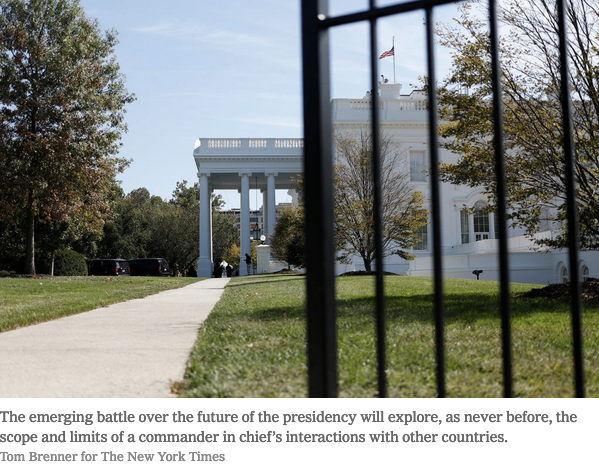WASHINGTON — Alexander Hamilton, as usual, got right to the heart of the matter. When the framers were designing the Constitution and its power of impeachment, one of the high crimes they had in mind was giving into what Hamilton called “the desire in foreign powers to gain an improper ascendant in our councils.”
For the authors of the country’s charter, there were few bigger threats than a president corruptly tied to forces from overseas. And so as the House opened an impeachment inquiry into President Trump’s interactions with Ukraine this past week, the debate quickly focused on one of the oldest issues in America’s democratic experiment.
The emerging battle over the future of Mr. Trump’s presidency will explore as never before the scope and limits of a commander in chief’s interactions with other countries. His adversaries echo the fears of the founders in accusing Mr. Trump of committing high crimes by pressuring Ukraine to dig up dirt on Democratic opponents while holding up American aid. Mr. Trump contends that impeaching him would infringe on the ability of future presidents to conduct foreign policy.
Unlike the impeachment battles involving Andrew Johnson, Richard M. Nixon and Bill Clinton, the debate over Mr. Trump turns on whether a president can solicit or accept help from abroad to advance his political fortunes and where lies the line between the national interest and personal interests.
Who Is Gordon Sondland, and What Was His Mission to Ukraine?




